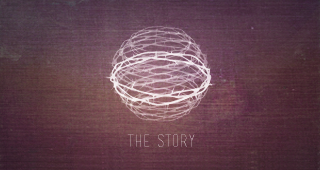Jesus and Sacrifice
April 21, 2013 | Lee Camp
Passage: Daniel 7:1-14
“Son of Man” is used extensively in the Gospel accounts to refer to the work of the Messiah, especially in the contexts of the Messiahs’ work as the suffering servant and the judge of all human history. (Click here to get a list of all the gospel references.)
In Daniel 7:13, the “Son of Man” (translated “one like a human being” in NRSV) is the one who is appointed as ruler over all the kingdoms of this world. In the context of Daniel 7, it is assumed by most interpreters, so far as I know, that Daniel’s vision sees the "Son of Man" triumphing over all the great kingdoms of the ANE: Babylonians, Medes, Persians, and Greeks in his vision. This apocalyptic appearance of the “Son of Man” stands in the background of many of the gospel references to what we call the “second coming” of the Messiah. (So “when you see the Son of Man coming on the clouds” in the Gospels refers back to Daniel 7.)
Theologically and traditionally, “Son of Man” is often used in tandem with “Son of God.” When paired in this way, “Son of Man” is used to emphasize the humanity of the Christ while “Son of God” is used to emphasize the divinity of Christ. (And there are some problems with this way of using these phrases. But we shall not take time to go into the problems with this.) Moreover, the "Son of Man" idea emphasizes that Christ’s ministry, teaching, and way of life are to be considered the authoritative standard for the manner in which we humans/Israel/the church are to live and act and be in the world. This way of thinking about the phrase “son of Man” is buttressed by the observation that in Aramaic, “son of” is often used to mean “bearing the characteristics of.” [For example, “James son of Zebedee and John the brother of James (to whom he gave the name Boanerges, that is, Sons of Thunder),” Mark 3:17, apparently implies that James and John were loud!] So, in other words, the “Son of Man” is the one who reveals to us the full characteristics of what it means to be human.
The sermon may develop some of the following ideas and themes:
Followers of the Son of Man are not simply subscribing to a “religion.” Even more: to those who think “spirituality” superior to “religion,” followers of the Son of Man are not simply subscribing to a “spirituality” that is somehow compartmentalizable, separable from the rest of "real life." Instead, we are followers of One whom we claim is the Lord over all powers and dominions; this is an all-encompassing claim. Jesus is not a private lord; he is Lord of all, or not Lord at all.
This all-or-nothing assertion places an all-or-nothing claim upon our lives.
As the Son of Man is in the world, so are the followers of the Son of Man: the manner in which the Son of Man moves toward triumph over all the Kingdoms of this world is the manner by which we are to triumph: not through triumphalistic power, but the power of suffering love, etc.
Hold two things together: a vision of ourselves as the very bearers of the new world that is on the way (and thus a vision of ourselves and our children as visionaries, luminaries, activists, teachers, and harbingers of that world on the way), while at the same time avoiding a “messianic complex,” thinking that we can “save the world” – for not even the Son of Man had a “messianic complex.”
I may use the exploits of Antiochus Epiphanes to illustrate the socio-political background of the claims of Daniel. Many interpreters think Antiochus Epiphanes is the “arrogant” “little horn” of Daniel 7:8ff. He was a majorly wicked character. He illustrates the manner in which rulers of this world arrogate to themselves claims only suitable to God alone. (“Epiphanes,” as one of the most obvious examples here, means “manifest,” and was a way of asserting that God was made manifest in Antiochus himself.)
Series Information

